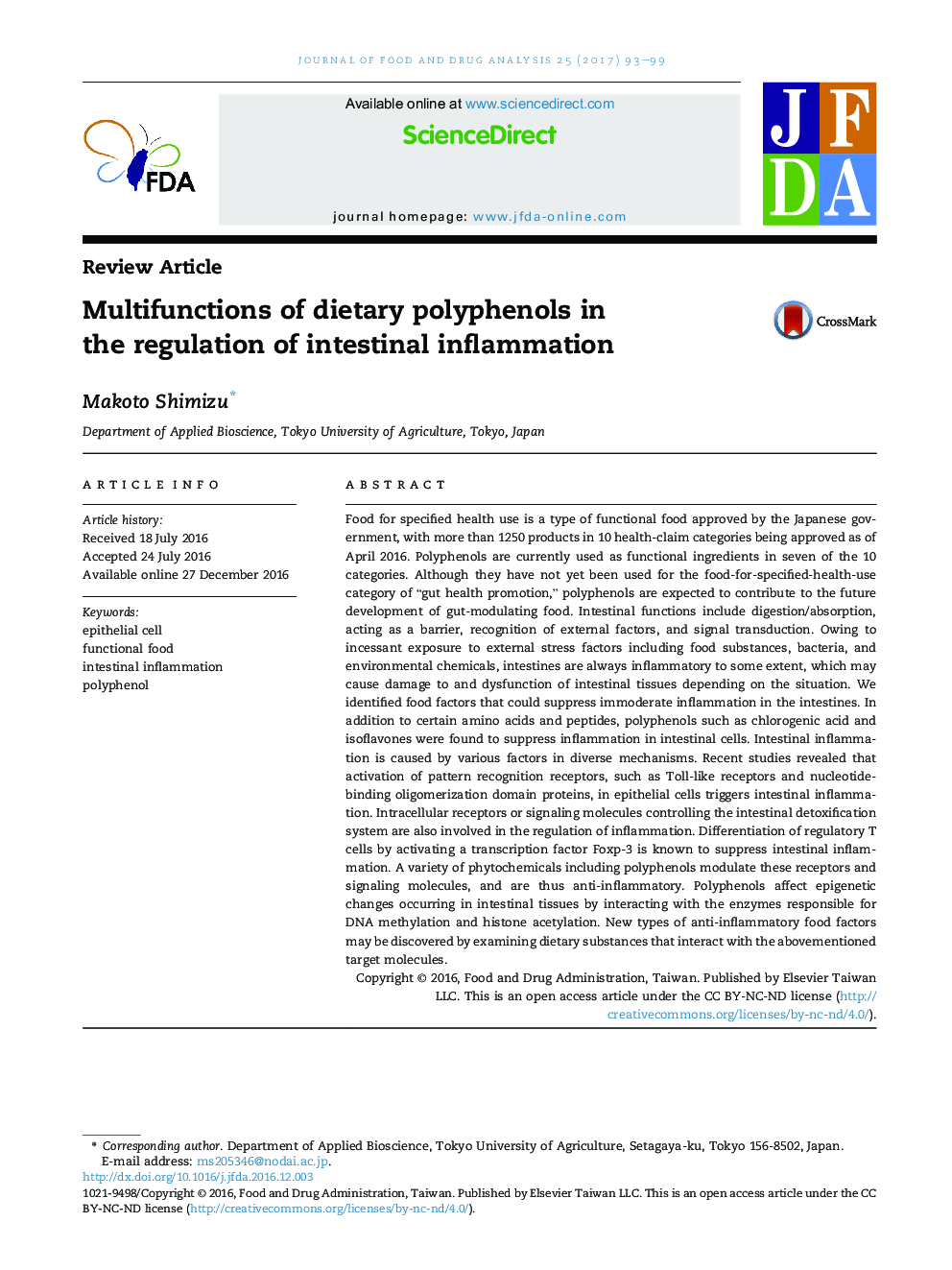| کد مقاله | کد نشریه | سال انتشار | مقاله انگلیسی | نسخه تمام متن |
|---|---|---|---|---|
| 5551074 | 1402938 | 2017 | 7 صفحه PDF | دانلود رایگان |
Food for specified health use is a type of functional food approved by the Japanese government, with more than 1250 products in 10 health-claim categories being approved as of April 2016. Polyphenols are currently used as functional ingredients in seven of the 10 categories. Although they have not yet been used for the food-for-specified-health-use category of “gut health promotion,” polyphenols are expected to contribute to the future development of gut-modulating food. Intestinal functions include digestion/absorption, acting as a barrier, recognition of external factors, and signal transduction. Owing to incessant exposure to external stress factors including food substances, bacteria, and environmental chemicals, intestines are always inflammatory to some extent, which may cause damage to and dysfunction of intestinal tissues depending on the situation. We identified food factors that could suppress immoderate inflammation in the intestines. In addition to certain amino acids and peptides, polyphenols such as chlorogenic acid and isoflavones were found to suppress inflammation in intestinal cells. Intestinal inflammation is caused by various factors in diverse mechanisms. Recent studies revealed that activation of pattern recognition receptors, such as Toll-like receptors and nucleotide-binding oligomerization domain proteins, in epithelial cells triggers intestinal inflammation. Intracellular receptors or signaling molecules controlling the intestinal detoxification system are also involved in the regulation of inflammation. Differentiation of regulatory T cells by activating a transcription factor Foxp-3 is known to suppress intestinal inflammation. A variety of phytochemicals including polyphenols modulate these receptors and signaling molecules, and are thus anti-inflammatory. Polyphenols affect epigenetic changes occurring in intestinal tissues by interacting with the enzymes responsible for DNA methylation and histone acetylation. New types of anti-inflammatory food factors may be discovered by examining dietary substances that interact with the abovementioned target molecules.
Journal: Journal of Food and Drug Analysis - Volume 25, Issue 1, January 2017, Pages 93-99
